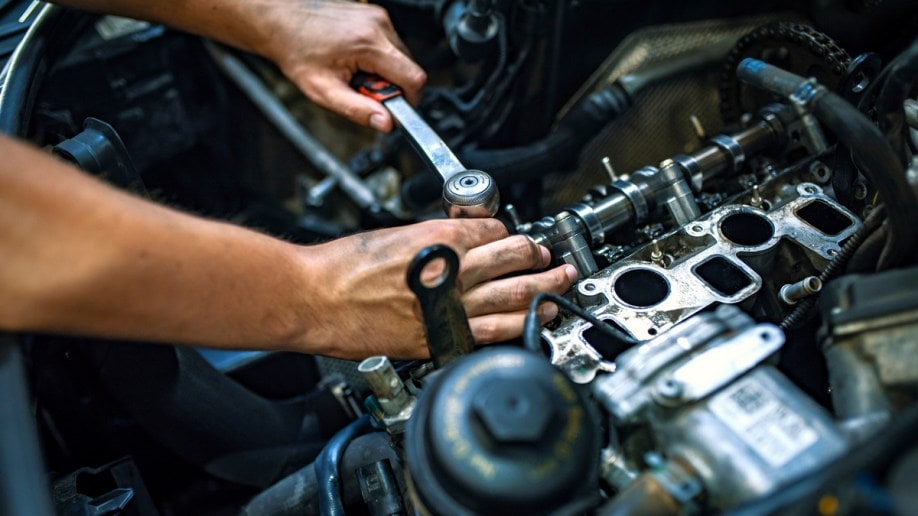Quick Facts About Rebuilt vs. Remanufactured Engines
- Rebuilt engines typically cost less but the job might not use high-quality replacement parts.
- A remanufactured engine can be as good as a new engine, last for many years and miles, and have attractive warranty coverage.
- The longevity of rebuilt engines and remanufactured engines depends on many factors, including workmanship and parts’ quality, driving conditions, and maintenance.
Car engine replacement can be expensive, but having an engine rebuilt or choosing a remanufactured option sometimes makes sense and is cheaper than getting a new vehicle after engine failure. Continue reading to learn about rebuilt vs. remanufactured engines, their pros and cons, and whether getting a rebuilt engine is better for your situation.
- What Is a Rebuilt Engine?
- What Is a Remanufactured Engine?
- Which Is Better, Rebuilt or Remanufactured Engines?
What Is a Rebuilt Engine?
To rebuild engines, mechanics remove them from the car to disassemble the unit, inspect its components, and clean the parts. The auto shop may reuse serviceable moving parts and replace broken or worn-out ones. But most experts advise against this type of engine reconditioning unless it’s relatively new and you’re confident the engine needs only a few specific replacement parts to fix the current problem.
MORE: Car Maintenance Guide: Everything You Need to Know
How Many Miles Will a Rebuilt Engine Last?
The longevity of an engine rebuild depends on many variables, including the parts’ quality, level of workmanship, driving conditions, follow-up care, and maintenance. Many auto shops provide a 1-year/12,000-mile warranty on reconditioned engines.
Pros of a Rebuilt Engine
- Rebuilt engines can help bring some new life to a vehicle with a blown powertrain.
- Rebuilding an engine might proactively address other potential repairs with new parts.
- An engine rebuild cost is typically less expensive than a remanufactured engine.
Cons of a Rebuilt Engine
- A shop that rebuilds engines might choose used parts from a salvage yard over high-quality OEM replacement parts.
- Mixing new engine parts with the existing or used parts can limit the overall lifespan of a rebuilt engine.
- If offered at all, the limited warranty may not bring peace of mind and confidence in the refurbished unit.
What Is a Remanufactured Engine?
Remanufactured engines go through an extensive overhaul at small factories. Technicians at these facilities tear down engines and remanufacture them to their original standards by re-machining to restore mechanical tolerances and replacing parts with potential wear. Those critical components include new crankshaft bearings, piston rings, seals, gaskets, and much more.
How Long Does a Remanufactured Engine Last?
If correctly done, a remanufactured engine should be as good as a new one and provide many years — and more than 100,000 miles — of driving. Many remanufactured engines have warranties covering multiple years and unlimited miles. Choose an engine remanufacturing company with a good reputation that has been in business for a long time. Check if the company is a member of AERA, the trade association for engine builders, machine shops, and remanufacturers.
Pros of a Remanufactured Engine
- Remanufacturing facilities have standards for engine durability and quality.
- A remanufactured engine has every part replaced and extensive machining to provide a longer service life than rebuilt engines.
- Engines from reputable remanufacturing companies often have attractive warranty coverage.
Cons of a Remanufactured Engine
- Remanufactured engines cost more than their rebuilt counterparts.
MORE: Power Steering Guide: Everything You Need to Know
Which Is Better, Rebuilt or Remanufactured Engine?
Rebuilt engines and remanufactured engines have benefits and drawbacks. Money is the primary consideration for many car owners, with quality close behind that. Rebuilt engines typically cost less, but they don’t have to meet the exhaustive standards that most remanufactured engines have.
That leads to another question: Is a remanufactured engine as good as a new one? Many mechanics say they are, especially considering a cost that’s about 50% less than a brand-new engine. New replacement engines are from the automaker’s plants. According to data from Cox Automotive, Kelley Blue Book’s parent company, the average cost for engine replacement at a dealership is $7,850.
Read Related Articles:
- Does My Car Need a New Water Pump?
- How Do I Know If My Spark Plugs Need Replacing?
- Does My Car Need a New Fuel Pump?
Editor’s Note: This article has been updated since its original publication.











